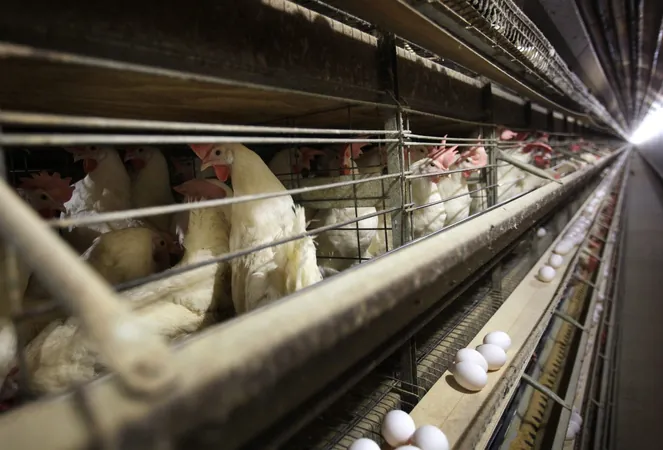
Alarming Avian Flu Case in Vancouver: What You Need to Know!
2024-11-21
Author: Emily
In a concerning development, the B.C. Ministry of Health has reported that a teenager from the Fraser Health region remains in critical condition after being infected with the H5N1 strain of avian flu, also known as bird flu. This case has raised eyebrows and sparked discussions about the potential risks associated with this virus.
The teenager was diagnosed on November 9, and health officials have been closely monitoring the situation. Dr. Brian Conway, affiliated with the Vancouver Infectious Diseases Centre, provided crucial insights into the nature of H5N1 and the risks it poses to the public. He made it clear that while the virus is known for its high mortality rate, the risk of human infection remains low.
According to Dr. Conway, people are generally exposed to H5N1 only if they work in close proximity to infected birds or mammals, such as poultry farms or during interactions with sick animals. He emphasized the lack of human immunity to this novel virus, comparing it to the initial stages of the COVID-19 pandemic when no one had built-up antibodies against the virus. "We are dealing with something completely new to the human immune system," he remarked, highlighting the ongoing risks.
Dr. Conway elaborated on the circumstances under which individuals might contract the virus. Activities like milking sick cattle or handling infected birds pose the highest risks. He noted that teenagers and young people could be more susceptible due to their still-developing immune systems.
In light of the situation, the Canadian Food Inspection Agency (CFIA) announced that avian influenza has been detected in commercial poultry in additional locations within Abbotsford and Chilliwack. The agency reassured the public that there are no food safety concerns associated with cooked poultry or eggs, dispelling fears of transmission through consumption.
Currently, the CFIA has identified 41 premises across Canada with confirmed cases of avian flu, with a staggering 37 of those located in British Columbia. To mitigate the spread of the virus, additional control zones will be established as necessary.
Despite the alarming circumstances, the provincial health ministry assures the public that there have been no new human cases of avian flu reported in B.C. and investigations into how the teenager contracted the virus are ongoing. The ministry's statement regarding the patient's status noted, "They remain in critical condition."
As the public watches closely, experts stress the importance of awareness and precaution in areas where the virus is present, particularly for those involved in agricultural work. This emerging situation serves as a stark reminder of the unpredictability of infectious diseases and the need for vigilance in our health protocols. Stay tuned for more updates as this story develops!









 Brasil (PT)
Brasil (PT)
 Canada (EN)
Canada (EN)
 Chile (ES)
Chile (ES)
 España (ES)
España (ES)
 France (FR)
France (FR)
 Hong Kong (EN)
Hong Kong (EN)
 Italia (IT)
Italia (IT)
 日本 (JA)
日本 (JA)
 Magyarország (HU)
Magyarország (HU)
 Norge (NO)
Norge (NO)
 Polska (PL)
Polska (PL)
 Schweiz (DE)
Schweiz (DE)
 Singapore (EN)
Singapore (EN)
 Sverige (SV)
Sverige (SV)
 Suomi (FI)
Suomi (FI)
 Türkiye (TR)
Türkiye (TR)